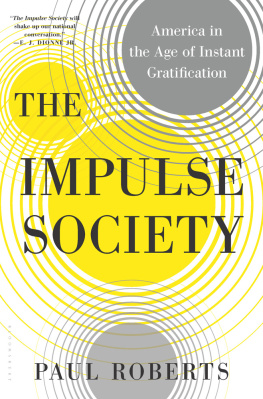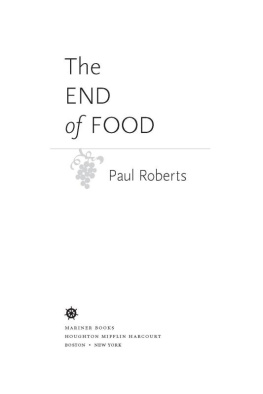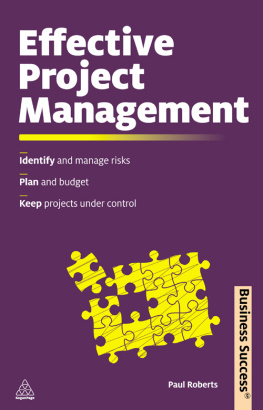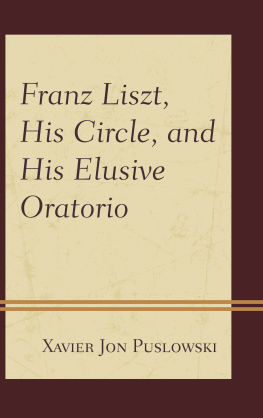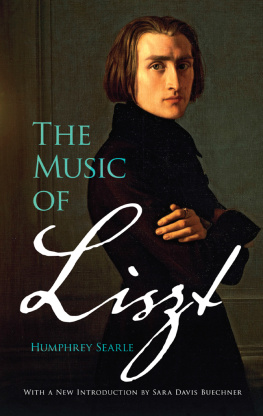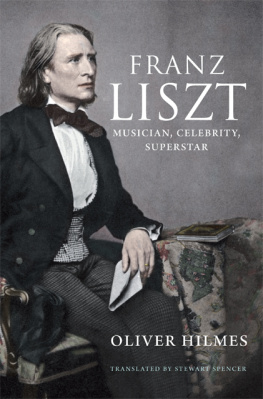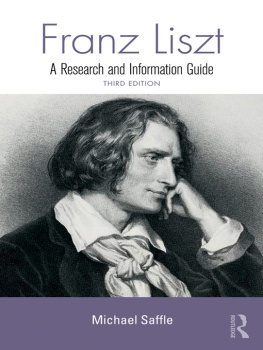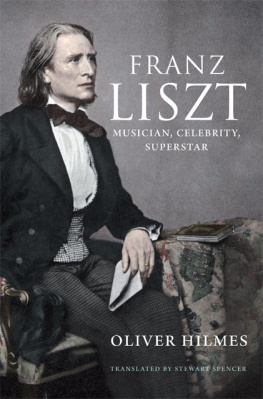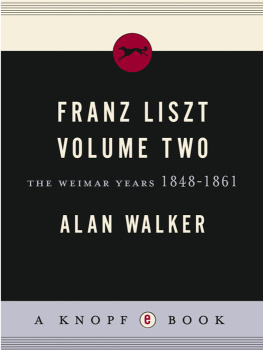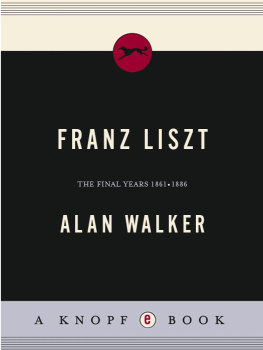Paul Roberts - Reading Franz Liszt
Here you can read online Paul Roberts - Reading Franz Liszt full text of the book (entire story) in english for free. Download pdf and epub, get meaning, cover and reviews about this ebook. year: 2022, publisher: Amadeus Press, genre: Detective and thriller. Description of the work, (preface) as well as reviews are available. Best literature library LitArk.com created for fans of good reading and offers a wide selection of genres:
Romance novel
Science fiction
Adventure
Detective
Science
History
Home and family
Prose
Art
Politics
Computer
Non-fiction
Religion
Business
Children
Humor
Choose a favorite category and find really read worthwhile books. Enjoy immersion in the world of imagination, feel the emotions of the characters or learn something new for yourself, make an fascinating discovery.

- Book:Reading Franz Liszt
- Author:
- Publisher:Amadeus Press
- Genre:
- Year:2022
- Rating:4 / 5
- Favourites:Add to favourites
- Your mark:
- 80
- 1
- 2
- 3
- 4
- 5
Reading Franz Liszt: summary, description and annotation
We offer to read an annotation, description, summary or preface (depends on what the author of the book "Reading Franz Liszt" wrote himself). If you haven't found the necessary information about the book — write in the comments, we will try to find it.
Reading Franz Liszt — read online for free the complete book (whole text) full work
Below is the text of the book, divided by pages. System saving the place of the last page read, allows you to conveniently read the book "Reading Franz Liszt" online for free, without having to search again every time where you left off. Put a bookmark, and you can go to the page where you finished reading at any time.
Font size:
Interval:
Bookmark:

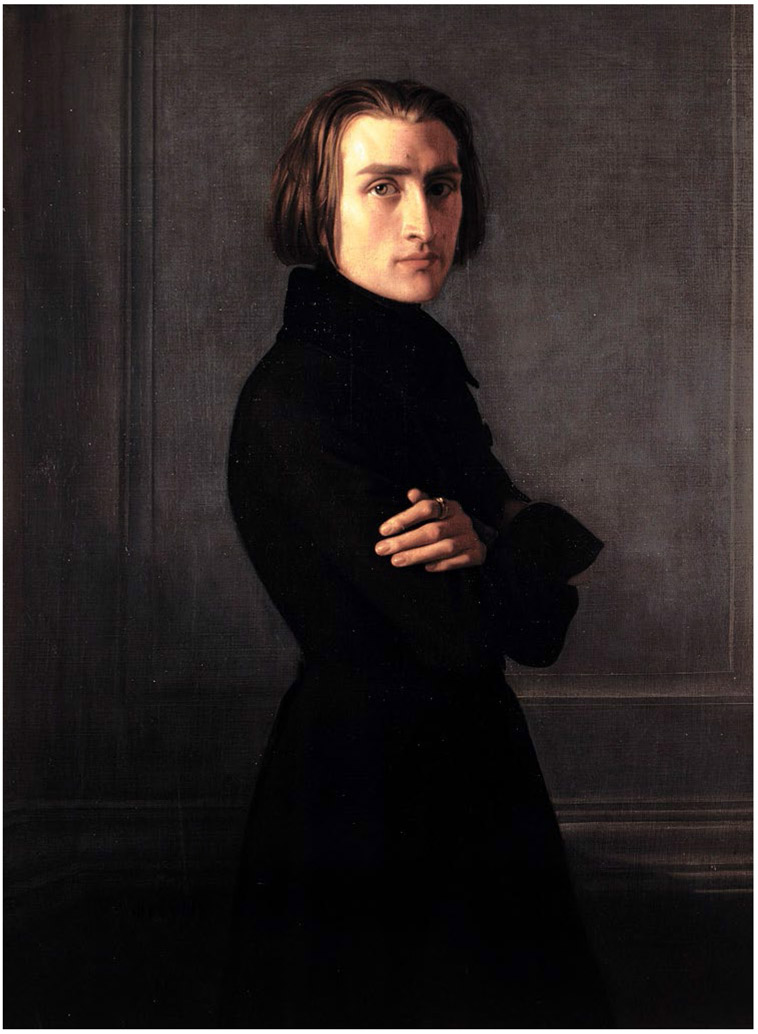
Portrait of Liszt by Henri Lehmann, oil, 1839.
Muse Carnavalet, Histoire de Paris (CC0 1.0).

Published by Amadeus Press
An imprint of The Rowman & Littlefield Publishing Group, Inc.
4501 Forbes Boulevard, Suite 200, Lanham, Maryland 20706
www.rowman.com
86-90 Paul Street, London EC2A 4NE
Copyright 2022 by The Rowman & Littlefield Publishing Group, Inc.
Clive James (trans.), The Divine Comedy, Canto 5, lines 149160. Copyright Clive
James 2013. Reproduced with permission of the Licensor through PLSclear.
All rights reserved. No part of this book may be reproduced in any form or by any electronic or mechanical means, including information storage and retrieval systems, without written permission from the publisher, except by a reviewer who may quote passages in a review.
British Library Cataloguing in Publication Information Available
Library of Congress Cataloging-in-Publication Data
Names: Roberts, Paul, 1949 author.
Title: Reading Franz Liszt : revealing the poetry behind the piano music / Paul Roberts.
Description: Lanham : Amadeus Press, 2022. | Includes bibliographical references and index. | Summary: Paul Roberts immerses readers in the world of Franz Liszt, megastar of Romanticism, through a vivid exploration of his most beloved pieces and literature that inspired themfrom Petrarchs love poetry to the sensibilities of Byron, Snancour, and others. Roberts reveals the deeper essence of Liszt, recasting him as a composer of poetic feeling Provided by publisher.
Identifiers: LCCN 2022004277 (print) | LCCN 2022004278 (ebook) | ISBN 9781538143346 (cloth) | ISBN 9781538143353 (epub)
Subjects: LCSH: Liszt, Franz 18111886Criticism and interpretation. | Piano music19th centuryHistory and criticism. | Music and literature.
Classification: LCC ML410.L7 R63 2022 (print) | LCC ML410.L7 (ebook) | DDC 780.92dc23
LC record available at https://lccn.loc.gov/2022004277
LC ebook record available at https://lccn.loc.gov/2022004278
 The paper used in this publication meets the minimum requirements of American National Standard for Information SciencesPermanence of Paper for Printed Library Materials, ANSI/NISO Z39.48-1992.
The paper used in this publication meets the minimum requirements of American National Standard for Information SciencesPermanence of Paper for Printed Library Materials, ANSI/NISO Z39.48-1992.
To Jenny
Directly, in itself, music signifies nothing, unless by convention and association. Music means nothing and yet means everything. One can make notes say what one will, grant them any power of analogy: they do not protest.
Vladimir Janklvitch, Music and the Ineffable
The more instrumental music progresses, develops and frees itself from its early limitations... the more it will cease to be a simple combination of tones and become a poetic language, one that, better than poetry itself perhaps, more readily expresses everything in us that transcends the commonplace, everything that eludes analysis.
Franz Liszt, An Artists Journey,
Lettres dun bachelier s musique, 18351841
People talk so much about music and they say so little. I am absolutely certain that words are not adequate to it, and if ever I found that they were, I should eventually give up composition. [Music] fills ones soul with a thousand better things than words. A piece of music that I love expresses thoughts to me that are not too imprecise to be framed in words, but too precise.
Felix Mendelssohn, Letter to
Marc Andr Souchay, October 15, 1842
Without the work of numerous scholars in my field and beyond, I could not have brought this book to fruitionI trust I have credited and thanked them all in my notes and bibliography.
To my students everywhere, I owe a deep debt of gratitude: to hear Liszts music live in my teaching studio (and for a long period only over Wi-Fi), at whatever level of accomplishment, has provided an endless source of stimulation and insight.
My editor Michael Tan at Rowman & Littlefield has been unfailing in his advice, patient attention, and encouragement.
For help and expertise, I am grateful to Professor Barry Ife, Dr. Jennifer Rushworth, and Knut Maseide; to Glenn Moore not only for Shakespeare; to my son Ned Roberts not only for the index.
Very special thanks to my ideal reader, Oliver Bennett of Hunch Theatre, who read every single chapter as it emerged and returned to me essay-length responses.
This book has arisen from a lifetimes fascination for literature and language that has paralleled my career as a pianist and piano teacher. The seed, planted a long time ago when I had just started out, was a brief conversation I had with an elderly and much-celebrated piano teacher. I introduced myself. I cannot remember quite how the topic came about, but within a few minutes we were talking about Liszts great triptych of piano pieces known as the Petrarch Sonnets, inspired by the love poetry of the fourteenth-century Italian poet Francesco Petrarca. Oh! I enthused, Those poems! She entered her studio. We dont need them, she said, and closed the door. I was deflatedand dumbfounded.
I trust that my lifetime still has a long way to go; but I feel I have lived long enough now to have something to say about the essential connections between literature and music, indeed about the need for these poems. After many decades I have formulated, at last, an answer to my colleague. This book is my answer. The first chapter I wrote was on Petrarch, which can be found here as , The Music of Desire.
Musicology over the past decades has at last turned to literary questions, but in my field of concert pianism the subject is still largely on the periphery. What has a piano recital to do with words on a page? What have the piano works of Franz Liszt to do with the canon of European literature? Actually, a considerable amount. That is what this book is about.
A mere glance at Liszts piano music, from the beginning to the end of his life, reveals a large number of major works that are intimately associated with a variety of literary texts, above all poetry, often quoted at length. Liszts practice takes the picturesque title to new heights, no longer Romance and Nocturne, or Raindrop and Moonlight, but quotations, taken from his voracious reading, whose purpose he passionately defended. For pianists and listeners who want to find a way into Liszts music, who want to know more, who want to explore the extraordinary mind and achievement of one of the greatest composers of the nineteenth century, the literary background to his compositions provides a vital clue. Almost always the texts he drew on are displayed at the front for all to read.
In some ways this book is a kind of biography. Exploring what Liszt read, and how he reacted to what he read, inevitably leads to an understanding of central aspects of his life and the people he met. His long love affair with Marie dAgoult, with whom he had three children, was the backbone of his formative years of the 1830s. She had a huge influence on his tastes and his reading, as did the prolific novelist, polemicist, and journalist George Sand. Liszt was for a time close to Heinrich Heine, Sainte-Beuve, Victor Hugo, and Alphonse de Lamartine, huge figures in European literature with whom he held his own. These were not mere acquaintances in the Paris salons, but writers with whom he engaged in the lively to and fro of debate, in letters, articles, and conversation.
Font size:
Interval:
Bookmark:
Similar books «Reading Franz Liszt»
Look at similar books to Reading Franz Liszt. We have selected literature similar in name and meaning in the hope of providing readers with more options to find new, interesting, not yet read works.
Discussion, reviews of the book Reading Franz Liszt and just readers' own opinions. Leave your comments, write what you think about the work, its meaning or the main characters. Specify what exactly you liked and what you didn't like, and why you think so.

